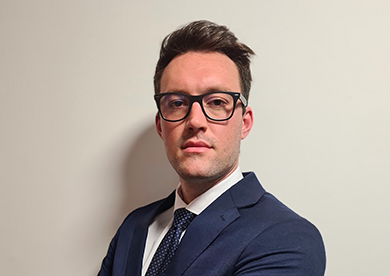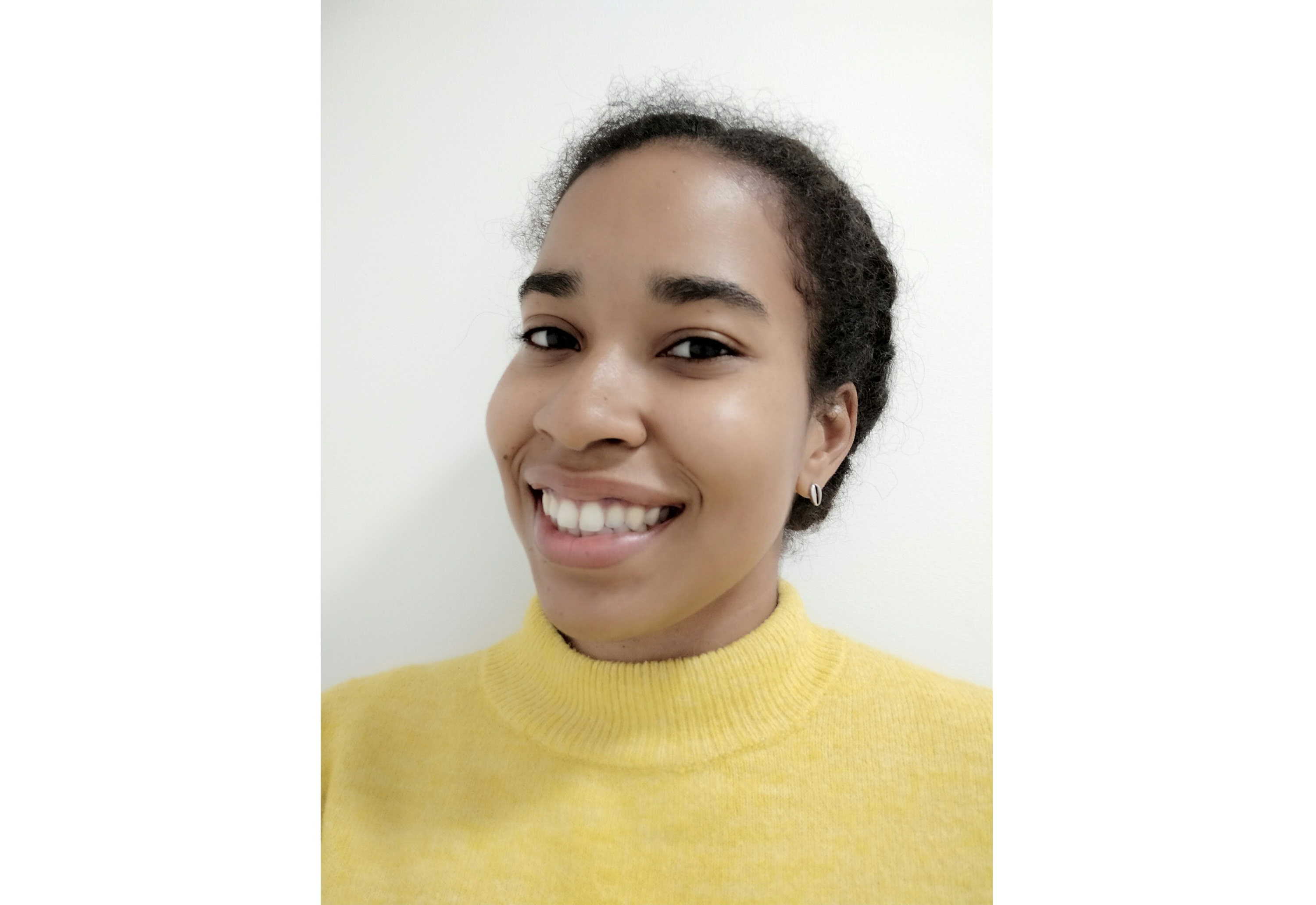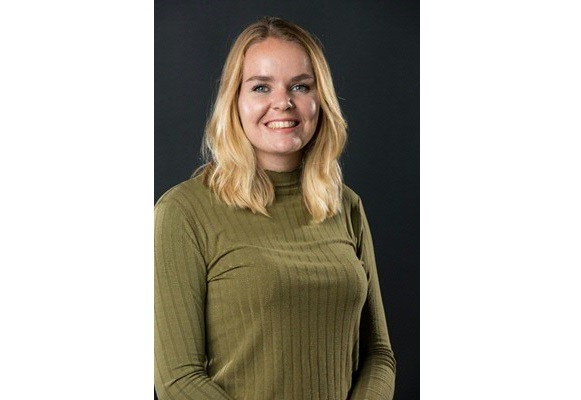
How do actors relate to each other and their natural environment in terms of threats and vulnerabilities? When and how is violence organized? How can possible conflicts be prevented or solved?
International Security, a track of the master International Relations, is aimed at issues of power politics and international order, peace and war, and strategy and diplomacy. Its main focus is the phenomenon of, and theoretical reflection on, 'violence' in its broader context.
Traditionally, attention for warfare and political violence,
i.e. military security, has dominated the study of International
Security. They still form the central issues. But especially after
the Cold War other concerns occupy the agenda, such as
environmental security (about climate change or industrial
hazards), societal security (about group identities) and economic
security (about welfare and development). These different types of
concerns have their own meaning when studying the causes of violent
conflict, its prevention and management, and conflict resolution
and reconciliation.
Methodologically, the study of International Security has profited
from the so-called constructivist turn in International Relations.
In addition to traditional analyses new approaches have emerged,
most notably Critical Security Studies, the Copenhagen School, and
the Risk Society approach. Studying International Security at
Groningen will allow you to explore these and other cutting edge
approaches to the field in depth and detail with internationally
renowned scholars of the subject.
The Master's track International Security:
The Master's degree programme International Relations is 60 ECTS. During your first semester, you take the module Advanced Theory and Research Practice in International Relations. This module must be followed by all students. In addition, you choose two Research Seminars (at least one of which in International Security) and you complete the specialization course Capita International Security.
During your second semester, you will write a Master Thesis (in the field of International Security) and you will choose between doing a Placement or professionalization electives.
If you choose the Placement option, you must find and apply for your Placement yourself, on the basis of your interests and skills. The Placement should last at least 7 weeks full-time. If you choose to do a Placement that takes longer than 7 weeks, it might be difficult to finish the programme within one year, and you will have to register for the extra months.
For examples of Research Seminar topics, please go to the Course Catalogue (link below). If you start the Master programme in September, you choose Research Seminars from semester I. If you start in February, you choose Research Seminars from semester II.
Because the programme starts in September as well as in February, all elements of the programme are offered both in the first and in the second semester. Please note: because the topics of the Research Seminars depend on the expertise of the lecturers, the list may be subject to change and differs each semester/year.
| Semesters | ||||
|---|---|---|---|---|
| CoursesCourse Catalog > | 1a | 1b | 2a | 2b |
| Advanced Theory and Research Practice in International Relations (5 EC) | ||||
| Capita International Security (5 EC) | ||||
| Research Seminar 1 (10 EC) Example:
| ||||
| Research Seminar 2 (10 EC) Example:
| ||||
| Master's Thesis International Security (20 EC) | ||||
| Master's Placement (10 EC, optional) | ||||
| Professionalization electives (10 EC, optional) Example: - Career Seminar Working in and on Governance; - Project Proposal Writing | ||||
| Programme options |
|---|
| Master's placement (specialization) A placement is a recognised component of this Master's track. It is your responsibility to find a placement yourself, but the Office for Student Affairs can offer help with this where necessary. |
| Specific requirements | More information |
|---|---|
| previous education |
Students with a Bachelor's degree in International Relations and International Organization from the University of Groningen or from another Dutch university, students with a Bachelor's degree from the University of Groningen in European Languages and Cultures (Profile Politics & Society) who started in 2016 or later, and students with a BA in International Relations and International Law (IRIL) from University College Groningen (if they have completed the following set of courses: International Relations Theories (and Practice) (5 ECTS), International Politics (5 ECTS), Statistics 1 (5 ECTS), Two of the following three qualitative methods courses: Qualitative Data Collection & Analysis (5 ECTS); Interpretive Methods (5 ECTS); Advanced Argumentation and Critical Thinking (5 ECTS)) have direct access to this track through the IR Admissions Board. Please use this application guide for your specific application procedure: https://www.rug.nl/let/how-to-apply-MA Students with a University of Groningen Bachelor's degree in:
who have completed a Faculty Minor in International Relations will also be admitted to this Master's track on that basis. Students from a similar field (which is not mentioned above) or those with a different educational background, for example Political Sciences, American Studies, History, European/International Law or International Economics, must submit a request for admission to the Master's degree in International Relations to the Admissions Board. The Board may decide to decline the request due to an insufficiently internationally orientated Bachelor's degree, or to admit the applicant to (parts of the pre-)Master programme. Please use this application guide for your specific application procedure: https://www.rug.nl/let/how-to-apply-MA After you complete your application, the IR Admissions Board will assess whether your educational/academic background meets the specific programme requirements, and will consider the level and curriculum of your previous studies. The Admissions Board will then determine whether:
|
| language test |
Additional requirements English: A VWO diploma or a subject certificate for VWO English (mark 6 or higher), minimum requirement of TOEFL iBT 90 (with a minimum of 21 on all items), or IELTS 6.5 (with a minimum of 6 on all items) or Cambridge C1 Advanced or C2 Proficiency. If you have a VWO diploma a language test is not required. |
| Study programme | Organization | Transition |
|---|---|---|
| All Universities of applied sciences |
Via a pre-master More information:with a HBO Bachelor's degree certificate with an international profile and/or knowledge of social sciences, for example Political Sciences, American Studies, History, European/International Law or International Economics and an IRIO pre-master |
| Study programme | Organization | Transition |
|---|---|---|
| International Business | University of Groningen |
Via a pre-master More information:with an IRIO pre-master |
| Sociology | University of Groningen |
Via a pre-master More information:with an IRIO pre-master |
| European Languages and Cultures | University of Groningen |
Additional requirements More information:If you started the BA programme in 2016 or later, with the profile Politics and Society OR with an IRIO faculty minor/ pre-master |
| American Studies | University of Groningen |
Additional requirements More information:with an IRIO faculty minor or pre-master |
| Media Studies | University of Groningen |
Additional requirements More information:with an IRIO faculty minor or pre-master |
| Frisian Language and Culture | University of Groningen |
Additional requirements More information:with an IRIO faculty minor or pre-master |
| History | University of Groningen |
Additional requirements More information:with an IRIO faculty minor or pre-master |
| Middle Eastern Studies | University of Groningen |
Additional requirements More information:with an IRIO faculty minor or pre-master |
| Communication and Information Studies | University of Groningen |
Additional requirements More information:with an IRIO faculty minor or pre-master |
| Liberal Arts and Sciences | University of Groningen |
Additional requirements Additional requirements:
with a specialization International Relations and International Law, and a number of required courses (see below) |
| Psychology (NL) | University of Groningen |
Via a pre-master More information:with an IRIO pre-master |
| Study programme | Organization | Transition |
|---|---|---|
| American Studies | All Research universities |
Via a pre-master More information:with an IRIO pre-master |
| History (part-time) | All Research universities |
Via a pre-master More information:with an IRIO pre-master |
| Political Science | All Research universities |
Via a pre-master More information:with an IRIO pre-master |
| International and European Law | All Research universities |
Via a pre-master More information:with an IRIO pre-master |
| International Relations and International Organization | All Research universities | No additional requirements |
| Type of student | Deadline | Start course |
|---|---|---|
| Dutch students | 15 August 2025 | 01 September 2025 |
| 15 January 2026 | 01 February 2026 | |
| 15 August 2026 | 01 September 2026 | |
| EU/EEA students | 15 October 2025 | 01 February 2026 |
| 01 May 2026 | 01 September 2026 | |
| 15 October 2026 | 01 February 2027 | |
| non-EU/EEA students | 15 October 2025 | 01 February 2026 |
| 01 May 2026 | 01 September 2026 | |
| 15 October 2026 | 01 February 2027 |
| Specific requirements | More information |
|---|---|
| previous education |
Students with either a Bachelor's Degree in Social Sciences (including - but not limited to - Economics, Political Science, Development Studies, Psychology, Sociology, Social Geography), or an internationally oriented Bachelor's degree such as International Relations, Regional Studies, European/International Law, or (Modern) History can submit an application to the IR Admissions Board. Please use this application guide for more information regarding your eligibility and your specific application procedure: https://www.rug.nl/let/how-to-apply-MA After you complete your application, the IR Admissions Board will assess whether your educational/academic background meets the specific programme requirements, and will consider the level and curriculum of your previous studies. The Admissions Board will then determine whether:
|
| language test |
Additional requirements English: A VWO diploma or a subject certificate for VWO English (mark 6 or higher), minimum requirement of TOEFL iBT 90 (with a minimum of 21 on all items), or IELTS 6.5 (with a minimum of 6 on all items) or Cambridge C1 Advanced or C2 Proficiency. |
| Type of student | Deadline | Start course |
|---|---|---|
| Dutch students | 15 August 2025 | 01 September 2025 |
| 15 January 2026 | 01 February 2026 | |
| 15 August 2026 | 01 September 2026 | |
| EU/EEA students | 15 October 2025 | 01 February 2026 |
| 01 May 2026 | 01 September 2026 | |
| 15 October 2026 | 01 February 2027 | |
| non-EU/EEA students | 15 October 2025 | 01 February 2026 |
| 01 May 2026 | 01 September 2026 | |
| 15 October 2026 | 01 February 2027 |
Upon graduation students hold a (60 ECTS) MA degree in International Relations with a track in International Security from the University of Groningen. The Master programme in International Relations prepares its students for professions and research careers where knowledge of international-political developments and the ability to analyze and assess complex issues and to form grounded judgements are relevant.
Although not limiting you to a specific field, your track choice strengthens your profile in International Security and benefits you when applying for specialized jobs in that field.
During the programme you will complete an internship: this will provide you not only with an insight into the job-market, but also further develop your professional skills as well as expand your network.
Many graduates become policy advisors for national governments, NGOs, and international organizations in international politics. An increasing number of graduates also use their analytical skills to advise international businesses, or work as lobbyists, international executives, press officers, journalists, and researchers.
Alumni of the International Security track work at:
NGO:
Government:
International Organizations:
Business:
Research:
Media:
The chairgroup International Security Studies (ISS) is part of the Department of IRIO. The six permanent staff members and over 10 PhD students all contribute to the Faculty's research theme Conflict Studies. This is done at various levels of abstraction, focusing on various issue-areas and on various political contexts.
At the theoretical level the chairgroup aims to contribute to a
better understanding of conceptualizations of security in time and
space. How have academic debates in security studies evolved and
how do they relate to security policies? This implies a focus on
securitization theory, regional security complex theory, strategic
studies, critical security studies and peace research.
In terms of issue-areas the group presently studies developments in
military & defence policies, terrorism, peace making, peace
building & peace keeping - including security sector reform -,
societal security in relation to social identities and state
formation, and finally securitization in energy, food, and health
policies.
In terms of political contexts, the group focuses on institutional
and regional settings in which security policies are shaped and
implemented. Developments in Intergovernmental Organizations are
studied - notably, in the European Union, NATO and the United
Nations Security Council, and also in Non-Governmental
Organizations in close cooperation with the research projects
related to the Network on Humanitarian Action. The chairgroup has
regional expertise about security politics in Europe (including
Turkey), the Middle East, parts of Sub-Sahara Africa, and
China.
The chairgroup brings much of its research interests together in the specialization International Security of the MA degree program IRIO.


Hi! My name is Stefano, I am 28 years old and I currently work as a Junior Business Continuity Manager, with over three years of experience in corporate security and crisis management. I have two master's degrees, one in International Security from the University of Groningen and one in Cybersecurity Governance at Leiden University.

Hi, I am Karol! I decided to study International Relations, with a focus on International Security, due to the significant changes that we have been facing nowadays in terms of climate change and the vulnerability that it creates, which is a significant security threat.
One of the main reasons for choosing the University of Groningen is its world-ranking position, the university being research-led, and the option to specialize in environmental security. Further, I was keen on studying in a student-centred city and I stand by my decision since the university's academic and student-life offer is excellent.
In the next five years, I would like to work for an international organization.

Hi! My name is Hester and I have been working as an international adviser at The Hague police unit since December 2020. I am involved in non-operational international cooperation, and this mainly concerns the exchange of knowledge with foreign countries on certain crime themes. So I don't work on ongoing operational police cases.
What kind of student were you?
I really enjoyed student life, I always had a part-time job and I
did committee work for the study association Commotie during my
Bachelor’s studies: Communication and Information Studies. I
was a part of the rowing club Gyas, where I became chairman of the
External Contacts committee. During exam periods, but also during
lecture weeks, I could often be found in the University
Library.
Did you have a particular area of interest, a
specialization if you like, during your studies?
During my BA, I studied for a semester abroad in Geneseo, New York
State. There I became more interested in the International
Relations and International Organization (IRIO) course. I then
chose the pre-master’s programme IRIO, and then naturally did
the Master’s IRIO.
During lectures, I noticed that the topic of international security interested me the most. Initially, I followed the broad International Relations programme, but within this programme, I chose the 'International Security' specialization by following specific courses and as a topic for my thesis dissertation. After I completed my thesis research on 'Government communication about terrorism', I did an internship with the police. During my internship, it became absolutely clear that I was very interested in the topic of international security.
As the organizational culture at the Scottish Parliament is very informal overall, I was given a very reasonable deal of responsibility which allowed me to experience the workings of the parliament first-hand. As such, I learned much about the day-to-day workings of a MSP's (Member of Scottish Parliament) office and the politics and alliances within the parliament itself – on a local as well as on an international level.
Are you interested in a research oriented career? Please also check our Research Master's Programme of International Relations.